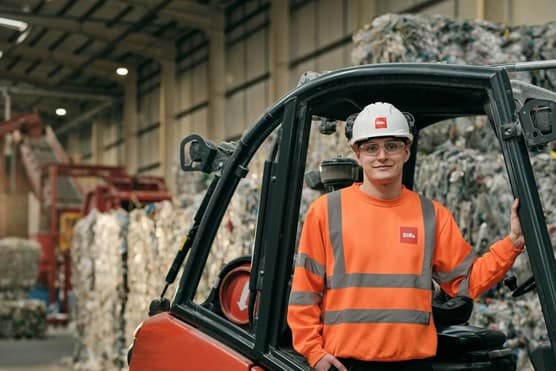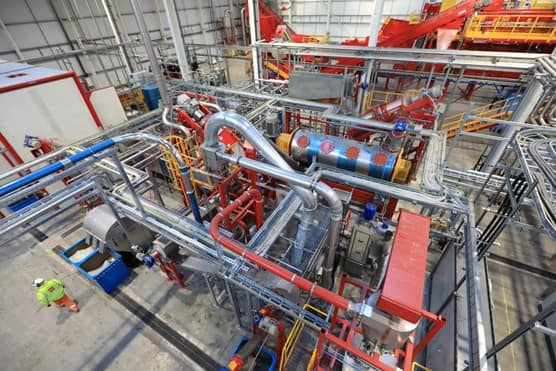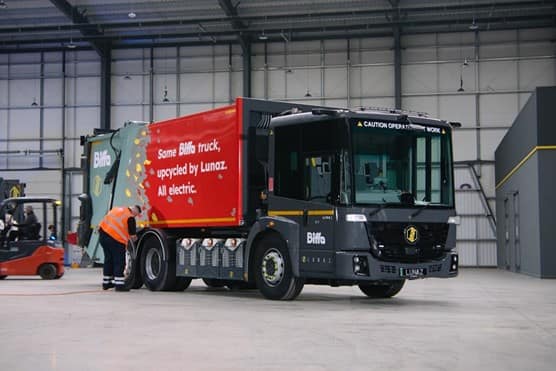
The reality of lightweight compactable waste materials in construction
The UK construction industry manages 65% of total waste as lightweight compactable materials. This does not have a waste stream classification, and it results in recyclable materials being wasted. Here’s what businesses need to do.
How important is sustainability in construction?
Biffa conducted a survey in partnership with the YouGov research institute, it shows that sustainability is a priority for construction businesses. In fact, 91% of large construction businesses ranked sustainability as their top priority for this year, more than any other sector including retail, hospitality, and manufacturing.
Biffa asked 1000 business decision makers what their priorities are for 2023, overall sustainability was ranked the lowest priority. Cost efficiency and revenue growth were rated the highest of all other sectors and business size. This is understandable, however it shows how seriously the construction sector takes this issue.
Construction is acutely impacted by soaring costs and inflation throughout their operations, what looked good on paper a year ago is now a different story. This is why many people are surprised to hear that despite these soaring costs across projects, construction still prioritises sustainability.
What is lightweight compactable waste stream?
65% of all onsite waste is currently defined as lightweight compactable. Strictly speaking, from a compliance perspective this waste stream does not exist, in that it doesn’t have a waste classification code. In essence it is a single skip, normally used and referred to on-site as a ‘general waste’ skip that ends up with a lot of packaging material in. Much of this packaging is recyclable and it becomes more difficult to recycle once it gets mixed up with other materials.
What is the risk with lightweight compactable?
Lightweight compactable attracts a slight discount versus the cost of true ‘general waste’, so many construction businesses are still maintaining a traditional mindset of ‘buy it cheap & stack it high’ when procuring waste services. However, businesses are taking on risk for short term financial savings.
Although the supplier agreement for lightweight compactable is often with a national company, the management of the individual skip is subcontracted to local operators. This can in turn be subcontracted from collection through to disposal where cost is the defining factor.
Although construction businesses might think that some materials are being recycled, it’s unlikely that is happening at scale. So, at best, this is a grey area and grey areas are at higher risk of becoming green washing areas as new laws, new measurement and reporting are introduced.
What can construction companies do about lightweight compactable?
Using unique, plot-level segregation methods Biffa research has revealed that the vast majority of what is currently referred to as lightweight compactable material is actually ‘packaging’ and can be processed as dry mixed recycling.
By calling it what it is, tradespeople have a clearer understanding of the material which when correctly segregated can offer the developer savings of up to 70% per cubic metre, reducing costs and protecting the environment. So managed properly, everybody wins.
How can construction businesses recycle more?
The construction industry accounts for a third of total UK waste output, so attention to detail matters. What happens to packaging matters. Separating materials like plastic film, cardboard and metal makes a difference and it makes a big difference when everyone does it.There needs to be a plot-level solution that makes tradespeople’s lives easier, not harder. Working with Biffa to recycle as much as possible is a simple and effective way to increase true recycling rates and support the UK circular economy.
What can construction businesses do to remain compliant?
Businesses need clarity, consistency and support to manage waste sustainably and compliantly. The harsh reality from the National Waste Crime Survey this year is that 18% of all waste in the UK is managed illegally.Transparency is key to remaining compliant. Complex supply chains and multiple layers between the operator and the end destination lack that transparency. At Biffa we work with construction businesses to address this head-on.
We provide a transparent end destination journey because we are mostly handling the materials ourselves. As a result, Biffa can provide a clear, consistent, audit-proof Board report for our corporate construction clients, in their own preferred format.



